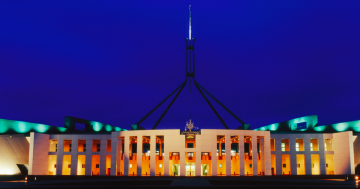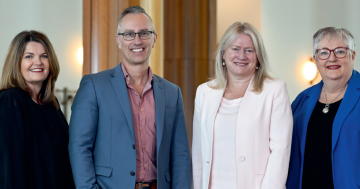Georgina Dent* says a new report from the Sex Discrimination Commissioner reveals that workplace sexual harassment is widespread, pervasive and on the rise in Australia.
 Australian Sex Discrimination Commissioner, Kate Jenkins (pictured) last week released findings confirming that workplace sexual harassment in Australia is widespread, pervasive and has increased significantly in the last six years.
Australian Sex Discrimination Commissioner, Kate Jenkins (pictured) last week released findings confirming that workplace sexual harassment in Australia is widespread, pervasive and has increased significantly in the last six years.
“Sexual harassment is a problem that affects millions of Australians, particularly in our workplaces,” Jenkins says.
“One in three people surveyed told us they have experienced being sexually harassed at work in the last five years.”
Almost two in five women and just over one in four men said they have been sexually harassed at work in the past five years.
“These figures are unacceptable and have increased significantly since the last survey in 2012, which found one in five people told us they had experienced sexual harassment in the workplace in the previous five-year period,” Jenkins says.
“Worryingly, people aged 18 to 29 were more likely than those in any other age groups to tell us they have experienced workplace sexual harassment in the past five years.”
Despite the surge in public concern about sexual harassment generated by the #MeToo movement the results reveal that formal reporting of workplace sexual harassment remains low.
Fewer than one in five people made a report or complaint.
“We know from our research that many people are afraid to report their experiences of unwelcome sexual conduct out of fear that they won’t be believed, that it’s not worth it, that they’ll be ostracised and that it could damage their career,” Jenkins says.
“It’s also worrying that almost half of those who did make a formal report said that nothing changed at their organisation as a result of the complaint.”
The survey results provide industry-specific data, with reports of experience of workplace sexual harassment alarmingly high in the information, media and telecommunications industry, where 81 per cent of employees have experienced it in the last five years.
It is particularly prevalent in arts and recreation services, electricity, gas, water and waste services and the retail trade sector.
“Unwelcome sexual conduct on this scale in the workplace not only causes distress to workers and colleagues, it impacts workplace productivity and impedes career progression, which has an economic impact on businesses and families,” Jenkins said.
The survey results will inform the Australian Human Rights Commission’s National Inquiry into sexual harassment in Australian workplaces, which will begin public consultations later this month.
The inquiry is already accepting submissions and the Commission is hoping to hear from individuals and organisations across the country about their experiences and ideas for change.
“We encourage all workplaces to examine the results for their industry and review the effectiveness of their current sexual harassment prevention initiatives,” Jenkins says.
“I genuinely believe there is a desire for change and an unprecedented appetite for solutions.”
“Our goal must be to ensure all Australians work in an environment that is safe, productive and free from sexual harassment.”
This survey makes clear what a gargantuan goal that is.
* Georgina Dent is Contributing Editor at Women’s Agenda in Sydney. She tweets at @georgiedent. Her website is georginadent.com.
This article first appeared at womensagenda.com.au.











